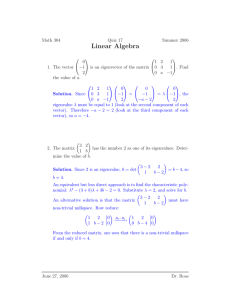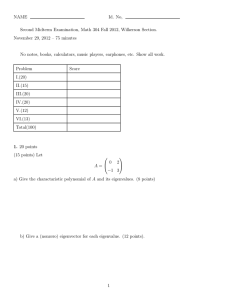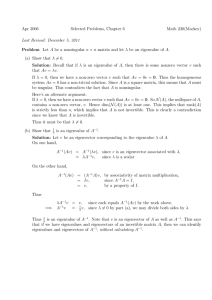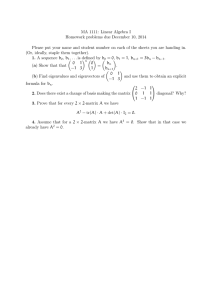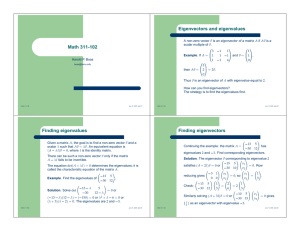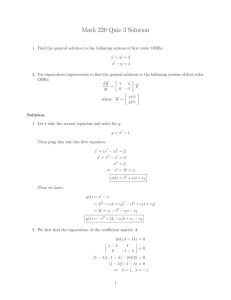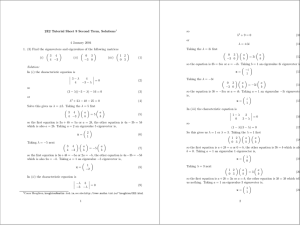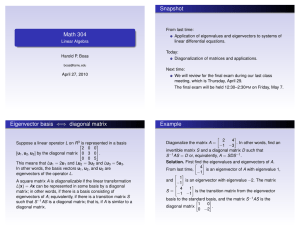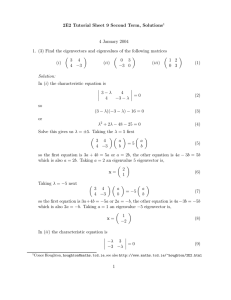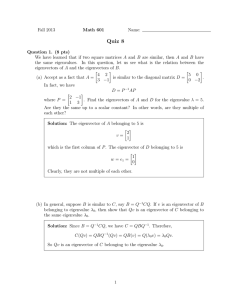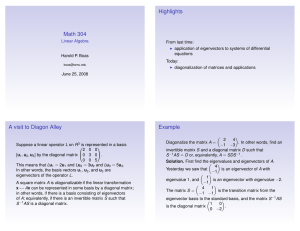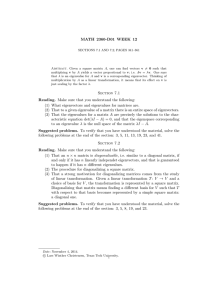Example of eigenvectors
advertisement
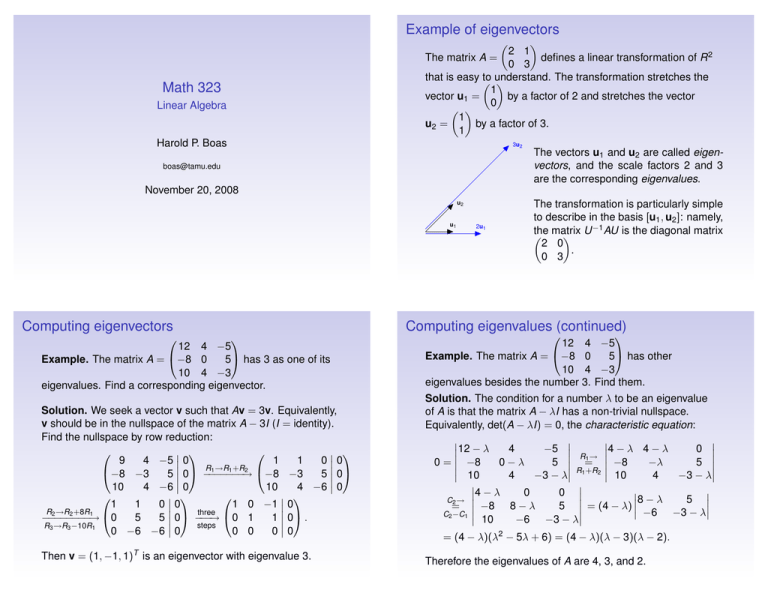
Example of eigenvectors 2 1 The matrix A = defines a linear transformation of R 2 0 3 that is easy to The transformation stretches the understand. 1 vector u1 = by a factor of 2 and stretches the vector 0 1 u2 = by a factor of 3. 1 Math 323 Linear Algebra Harold P. Boas 3u2 boas@tamu.edu The vectors u1 and u2 are called eigenvectors, and the scale factors 2 and 3 are the corresponding eigenvalues. November 20, 2008 u2 u1 Computing eigenvectors 2u1 The transformation is particularly simple to describe in the basis [u1 , u2 ]: namely, −1 the matrix U AU is the diagonal matrix 2 0 . 0 3 Computing eigenvalues (continued) 12 4 −5 5 has 3 as one of its Example. The matrix A = −8 0 10 4 −3 eigenvalues. Find a corresponding eigenvector. Solution. We seek a vector v such that Av = 3v. Equivalently, v should be in the nullspace of the matrix A − 3I (I = identity). Find the nullspace by row reduction: 9 4 −5 0 1 1 0 0 R →R +R2 −8 −3 −8 −3 5 0 −−1−−−1−−→ 5 0 10 4 −6 0 10 4 −6 0 1 0 −1 0 1 1 0 0 R2 →R2 +8R1 three 5 5 0 −−−→ 0 1 1 0 . −−−−−−−−→ 0 steps R3 →R3 −10R1 0 −6 −6 0 0 0 00 Then v = (1, −1, 1)T is an eigenvector with eigenvalue 3. 12 4 −5 5 has other Example. The matrix A = −8 0 10 4 −3 eigenvalues besides the number 3. Find them. Solution. The condition for a number λ to be an eigenvalue of A is that the matrix A − λI has a non-trivial nullspace. Equivalently, det(A − λI) = 0, the characteristic equation: 4 − λ 4 − λ 12 − λ 0 4 −5 R1 → −8 −λ 5 0−λ 5 = 0 = −8 R1 +R2 10 10 4 −3 − λ 4 −3 − λ 4 − λ 0 0 8 − λ 5 C2 → −8 8 − λ 5 = (4 − λ) = −6 −3 − λ C2 −C1 10 −6 −3 − λ = (4 − λ)(λ2 − 5λ + 6) = (4 − λ)(λ − 3)(λ − 2). Therefore the eigenvalues of A are 4, 3, and 2. Exercise 12 4 −5 5, find eigenvectors corresponding to the If A = −8 0 10 4 −3 eigenvalues 2 and 4. We already know that (1, −1, 1)T is an eigenvector with eigenvalue 3. Answer. Vector (4, −3, 4)T is an eigenvector with eigenvalue 4, and (5, −5, 6)T is an eigenvector with eigenvalue 2. 4 1 5 Remark. S = −3 −1 −5 is the transition matrix from an 4 1 6 eigenvector basis to the standard basis, and S −1 AS is a diagonal matrix with the eigenvalues 4, 3, and 2 on the diagonal.
